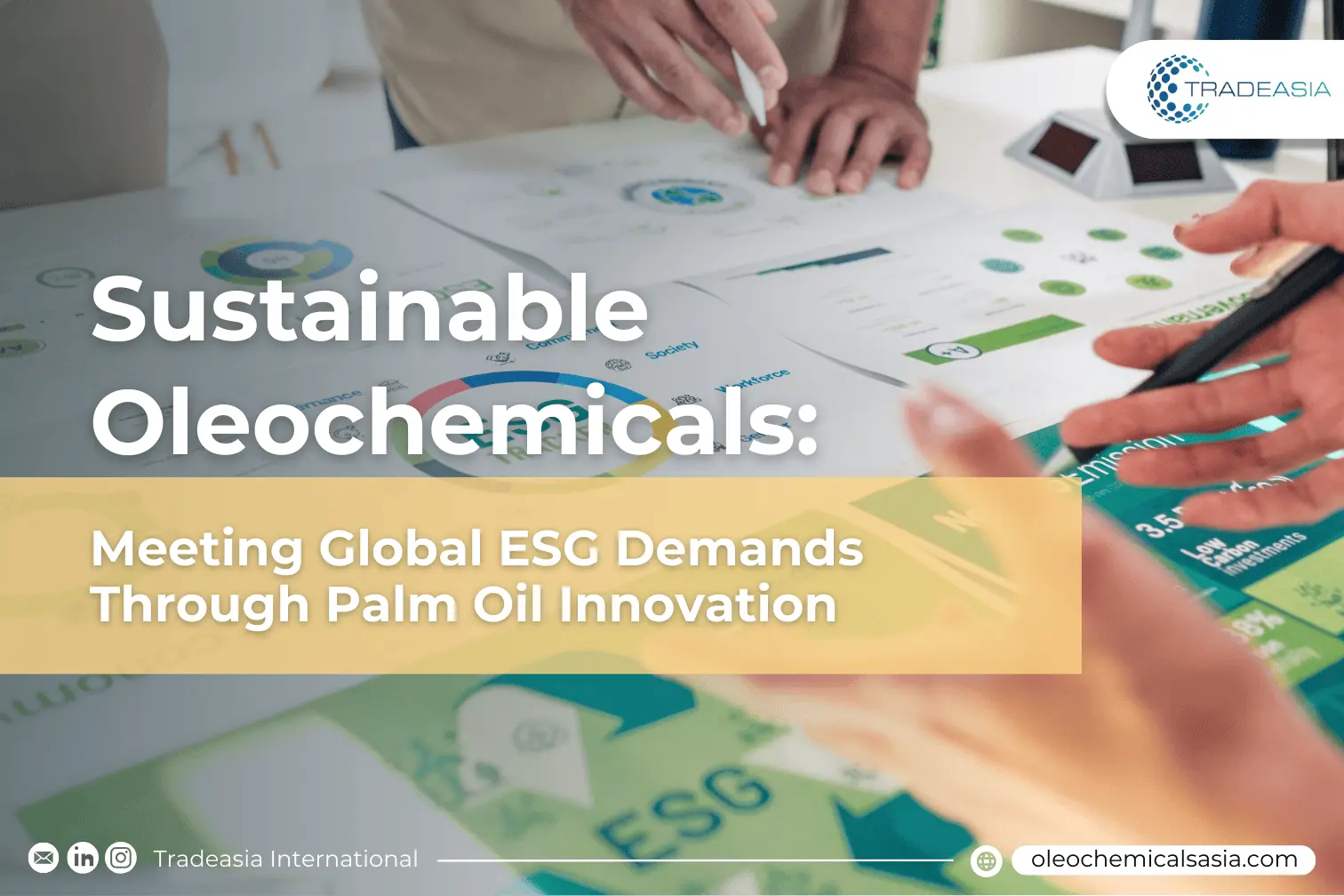Regulations Reshaping Global Supply Chains
Palm oil–based oleochemicals are increasingly becoming a cornerstone of sustainability strategies, particularly as global markets tighten their Environmental, Social, and Governance (ESG) requirements. This trend is especially evident in Europe and the United States, where regulations and consumer expectations are accelerating change. With demand for eco-friendly oleochemicals projected to surge throughout 2024 and 2025, producers and traders are under pressure to not only meet but anticipate these evolving standards.
One of the most influential regulatory shifts is the European Union Deforestation Regulation (EUDR), which took effect in June 2023 and will be fully enforced by December 2025. The regulation prohibits commodities, including palm oil, soy, cattle, cocoa, rubber, and coffee, from entering the EU market if they originate from deforested land. Companies placing palm oil products in Europe must now prove that their supply chains are deforestation-free and legally compliant, compelling the industry to adopt stronger traceability systems. National enforcement agencies across the EU have been tasked with strict oversight, placing compliance at the heart of market access.
Traceability has therefore become the linchpin of sustainable palm oil oleochemical production. Companies are deploying digital platforms and blockchain systems to monitor the supply chain from plantation to final product, ensuring that no illegal land conversion is tied to their inputs. These advancements echo similar expectations in the U.S. market, where corporate buyers increasingly demand supply chain transparency to satisfy ESG goals.
Innovation and Opportunity in Sustainable Oleochemicals
Market dynamics highlight why this transformation is both necessary and commercially viable. Palm oil already represents nearly 40% of the world’s vegetable oil supply while utilizing less than 10% of agricultural land, underscoring its efficiency compared to other crops. In 2024–2025, exports of palm oil derivatives, including oleochemicals, have continued to expand, driven by Asian economic growth and by Western regulations that favor sustainable inputs. Globally, around 30 million hectares of oil palm cultivation support more than 7 million smallholders, many of whom are now being integrated into sustainability schemes that align with international trade requirements.
Leading companies are adapting quickly by adopting RSPO (Roundtable on Sustainable Palm Oil) certification, as well as national standards such as Indonesia’s ISPO. Beyond certifications, many are committing to broader conservation strategies, including carbon stock preservation and farmer training programs that enhance yields while protecting ecosystems. This integrated model not only supports compliance but also strengthens supply chain resilience and market credibility, ensuring that sustainability becomes a driver of competitive advantage rather than a compliance burden.
Regulators are also working to streamline adoption. The EU Commission’s 2025 measures emphasize cost-efficient implementation of the EUDR while maintaining strict deforestation-free standards, offering companies clearer pathways to compliance. This clarity is encouraging faster uptake of sustainable practices and lowering barriers for smaller market participants.
Ultimately, the evolution of palm oil–based oleochemicals illustrates how regulation, innovation, and market forces can converge to build a more responsible global industry. By leveraging advanced traceability, securing sustainable certifications, and empowering smallholders, the sector is not only aligning with ESG demands but also creating long-term opportunities in a market increasingly defined by sustainability. For traders and industry stakeholders, this shift is more than compliance—it represents a chance to capture growth in a world where environmental and social integrity are becoming critical business drivers.

Leave a Comment